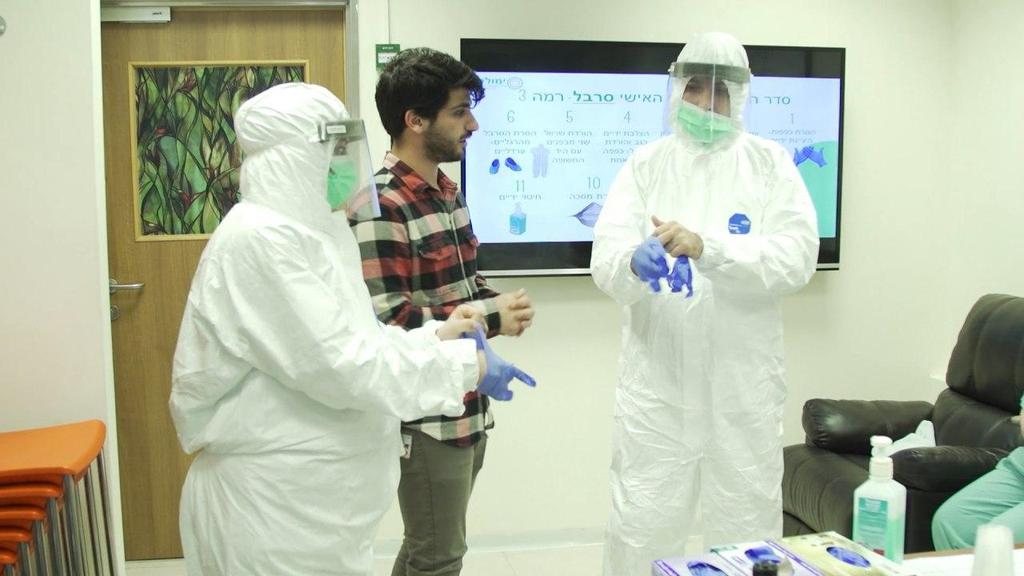A 37-year-old man has passed away at Petah Tikva's Rabin Medical Center on Tuesday due to complications of coronavirus, making him Israel's youngest victim of the deadly pathogen so far.
According to the hospital, the patient suffered from severe underlying health conditions and received respiratory assistance in the last week.
This latest fatality brings the country's death toll to 61, health officials reported Tuesday evening, alongside a total number of 9,006 confirmed COVID-19 cases.
Among the lastest numbers are 181 patients are in serious condition, including 113 patients receiving respiratory support, which represents a 30 percent jump in the number of serious cases over the past 24 hours.
Some 181 people remain in moderate condition. Another 7,930 people have mild symptoms and 683 have made a full recovery.
Hospitals are treating 708 patients, while 6,484 people are fighting the virus at home. Another 819 people are currently in specially designated hotels and 1,132 are awaiting a decision on whether they will be treated.
A nationwide lockdown to last for the first few days of Passover has come into effect in Israel on Tuesday.
lockdown
The lockdown, which was voted by the government on Tuesday, came into effect at 7pm of that day and will include a curfew from 3pm Wednesday until Thursday morning, to prevent people from giving in to the temptation to visit family and friends on the first night of the festival.
The nationwide lockdown essentially prevents most Israelis from leaving the municipal boundaries of their own cities, although they would be allowed to shop for essential supplies in their communities close to their homes.
This is in contrast to the current guidelines that allow the public to stock up on food and medicine in stores and pharmacies, which might not be closest to their place of residence.
First published: 09:09, 04.07.20


